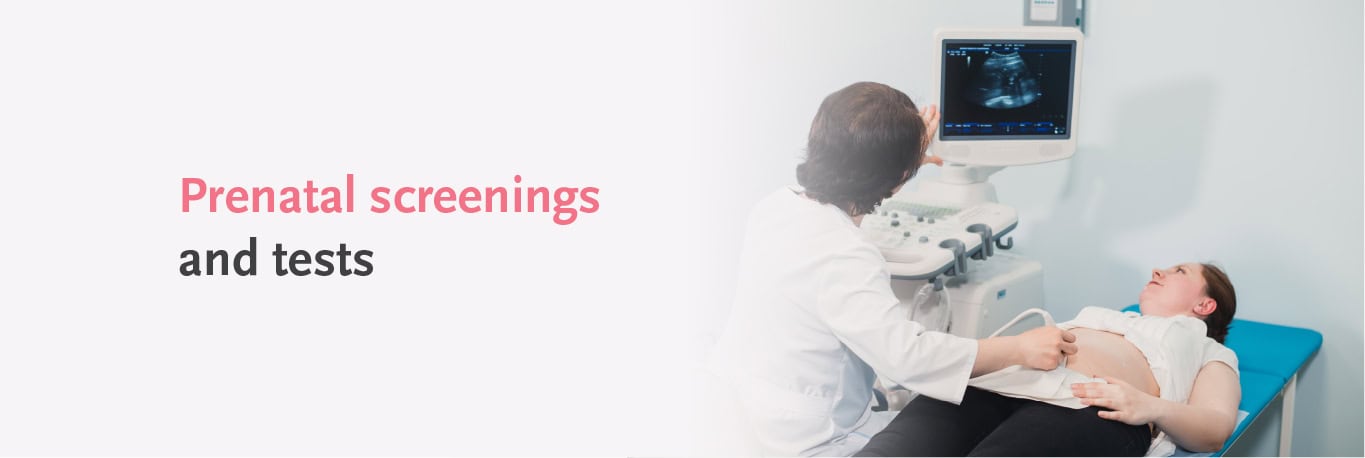Things you need to know
Things you need to know
- Prenatal screenings include tests for an internal checkup during pregnancy
- Prenatal testing allows your doctor to monitor the growth of your fetus
- Some prenatal screenings are repeated several times throughout the pregnancy
Prenatal screenings and tests
Prenatal screenings and tests
Prenatal screenings and tests is an umbrella term for a wide variety of medical tests and scans done during pregnancy.
Prenatal screening tests are done routinely during your prenatal visits and allow your healthcare provider to monitor your health as well as your baby’s growth and development. There are certain other tests that can help highlight the risk or probability of certain health conditions such as birth defects and chromosomal abnormalities.
Types of prenatal screenings and tests
Types of prenatal screenings and tests
Majorly, there are two types of prenatal testing. These include:
Screenings: Prenatal screening tests help in the early detection and identification of certain birth defects and genetic disorders.
Diagnostics: Diagnostic tests are done if your fetus is at risk of certain health conditions, as suggested by screening tests. Diagnostic tests are performed to confirm the diagnosis of a condition.
First trimester prenatal screening tests
First trimester prenatal screening tests
Prenatal screening tests done in the first trimester of pregnancy include:
- Carrier screening for genetic conditions
- Chorionic villus sampling (CVS)
- Ultrasound
- Blood tests
Second trimester screening tests
Second trimester screening tests
Common prenatal tests done during the second trimester of pregnancy are:
- Blood tests (quad marker screening test)
- Ultrasound
- Amniocentesis
- Glucose screening to check for gestational diabetes
Third trimester screening tests
Third trimester screening tests
Prenatal screenings and tests performed in the final trimester of pregnancy include:
- Test for group B strep
- Fetal monitoring




